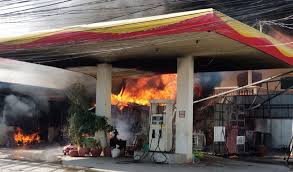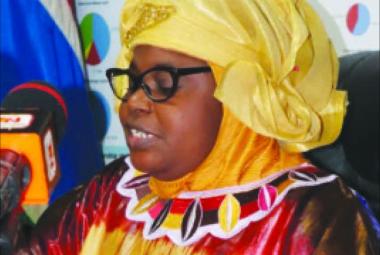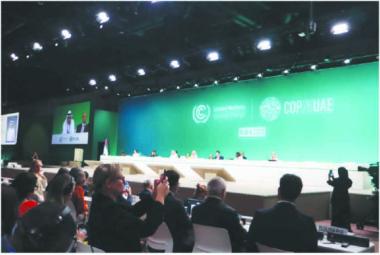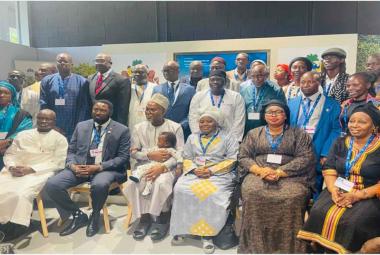Industries have been the hallmark of advancement and modern economic development of countries for some centuries now. However, despite its significant status in the modern development dynamics, industrial development has been noted to have all kinds of consequences; from environment -with issues of pollution and climate change - to catastrophic emergencies like explosions and other forms of industrial disasters. This article looks into industrial explosions, the safety and regulatory environment and frameworks in The Gambia with special focus on the potential threats posed by the proliferating fuel stations, as well as lived experiences of some incidents from gas companies. We will look into failures and causes of industrial explosions in the communities.
Is danger originating from technological or industrial accidents, dangerous procedures, infrastructure failures or certain human activities, which may cause the loss of life or injury, property damage, social and economic disruption or environmental degradation. It is also a process, phenomenon or human activity that may cause loss of life, injury or other health impacts, property damage, social and economic disruption or environmental degradation. Hazards may be natural, anthropogenic or socio-natural in origin (UNDRR, 2017).
Industrial explosions may be due to chemical reactions, improper electrical installations, failures of adjacent live parts on poles, mismatch of fire hydrates leading the inferno to expand, natural disasters and other emergencies.
Research has shown that Industrial fires and explosions can cause injuries and death, disrupt operations, damage or destroy facilities or assets (Powder & Bulk Solids, n.d).
While industrial disasters take many forms, fire incidents tend to be the most common indicator. Pateh Gibba is the Assistant Divisional Fire Officer of the Gambia Fire and Rescue Service. In this interview he began by highlighting their role as personnel of the Fire Service and that the institution at large. As fire fighters our responsibility is to save lives and protect properties”.
He noted that fires are deadly and that they have had some difficult and brutal experiences. He went on: “Fire-fighting and rescue operations especially at industrial level, is not an easy task as the possibility of loss of lives and the massive destructions of properties is high”.
He lamented the fact that victims of these industrial accidents and incidences of infernos, in general, include their colleagues involved in rescue efforts.
The incidents of gas explosions at a gas company at Jimpex, and at the Jah Oil fuel station are perhaps the latest major ones in Gambia.
Commenting on the general causes of gas and fuel stations fire incidents, Fire Officer Mr Gibba mentioned over-loading of sockets, reactions of combustible materials that are exposed to high temperature, gas companies with volatile flames substances, the charging of mobile phones at the fuel stations, remains of a lightning cigarettes, and ignition of vehicles not switch off, amongst others.
Mr Gibba intimated that a committee has been set to maintain, supervise and monitor, regulate, control and approve fuel stations that are to be built. “There will be 360-degree survey to determine whether where these petrol stations are built are suitable for the environment. And environmental impact assessments are also conducted to determine the level of explosions of such kinds’”.
Operating mechanism - The challenge of fire-fighting
Mr Gibba lamented the lack of enough much needed equipment like fire engines; stressing that the current machines in place can only regulate minor fires.
The Fire and Rescue Officer described fire hydrants are fittings installed in a water distribution network to ensure fire fighters access water. He said these materials are installed in strategic water distribution points in an area where easy access of water by fire fighters in the incidents of fire outbreaks is possible.
He suggested that fire hydrants should be installed in almost every corner of our communities; especially in markets. Underscoring the importance of having more fire hydrants, Mr Gibba said it minimises risk of destructions when fire occurred, as fire hydrants installed in communities can ensure easy access of water if the need arise.
However, he noted that fire hydrants are expensive and not easy to obtain. “We are liaising with NAWEC authorities to ensure fire hydrant materials are installed in other areas in the country,” he said.
The Fire Officer pointed to land demarcations as contributing to the difficulty of having more fire hydrants installed. “Settlements and buildings are constructed on these materials making it difficult to have a better discharge of nozzles, and strike of water to effectively confuse the fire during fire- fighting,” Mr Gibba asserted.
The Fire Officer Mr Gibba argued that people should change their attitudes and behaviours towards fire officers, stressing that their approaches, blames and insults to fire officers is unfound. "Fire officers are not to be blame nor should they be seen being faulty of destructions of infernos because we intervene to help safe lives and properties. We are in scarcity of most of our fire fighting equipment and the public should understand. We are appealing to the Gambia government to come to our aid and the media is no exception.’’ He added. He assured that Gambia government has manifestations that will surface sooner or later to ensure enhance rescues in The Gambia.
Ebrima Seckan is the Water Distribution Manager at NAWEC. He intimated that there are two types of water hydrants; namely the underground water hydrant - the type buried in the ground and accessed through its chambers – and the pillar type, which is very common and installed above the ground, and water is accessed through a network connection.
He went on to explain that in the installation of fire hydrants adoption process is done in consultation with fire fighters to avoid mismatch connectivity and to make it easy for the fire fighters to have easy accessibility.
“At Nawec we use fire hydrants to flux the network. Almost all fire hydrants installation project done in Gunjur, and Koturing, fire officials consulted and the network connectivity is explained to avoid complications of mismatch adaptations. We only install fire hydrants in strategic places like markets,” he said, stressing that industrial companies should be able to have their own fire-fighting mechanisms in place by installing fire hydrants in strategic points in their business operation centres. Mr Seckan revealed that there are one hundred and thirty-five fire hydrants installed in the Greater Banjul Area.
Mr Seckan cautioned people not to build concretes on fire hydrants because it makes it difficult for them to access it when the need arises. He said fire hydrants should be handled with care by fire fighters because it is costly. He intimated that they are migrating from underground type installation to pillar type adaptation to ensure enhance easy accessibility.
"It should be everyone’s responsibility to protect fire hydrants in this country because the life it may safe someday could be your own,” he said, adding that public education is highly needed and appeal to physical planning to effectively monitor settlements of people.
Jerreh Barrow is the Commissioner for Petroleum at the Ministry of Petroleum and Energy (MoPE). Commenting on his ministry’s role with regard to the establishment of petrol stations and gas companies in the country, Barrow said while the ministry is responsible for formulating petroleum policies in the country, different institutions are responsible for regulations of the petroleum supply chain.
He explained that the coming into being of the Petroleum Enactment Act 2016 in December necessitated the need for a comprehensive administrative framework, which seeks to materialise government’s policy objectives, regulating and analysing petroleum value chain and foundation for the supply chain. “The various components of importation, storage, transportation, and marketing and retail has envisaged the need to develop individual regulation elements of the supply chain for a better petroleum management. For the first time in 2016 the requirements for transportation, importation, amongst others were stated. The regulation, he said contained six thematic areas that have clearly defined the petroleum operations and services and they are: importation, storage, service, health and safety, and emergency supply regulations.
Further on the petroleum policy, Mr Barrow said the policy and regulatory framework have clearly delineated responsibilities for petroleum administration in which the Ministry does the policy and PURA does the regulations and other operators are the private sector players. ‘‘The law requires you to obtain a licence, and the regulation defines you the criteria that are to be met for business operation amongst others,’’ he added.
The Commissioner pointed out that many petrol stations in the country predated the Petroleum Products Act 2016. He admitted that there were many challenges when it comes to inter-sectoral collaboration and coordination in the processing of applications until recently, when government partner institutions were granting permits or clearances under multiple umbrella authorities.
Mr Modoulamin Sampo Ceesay is the Director of Energy and Petroleum at the Public Utility and Regulatory Authority (PURA). He delved into the regulatory measures in place for petrol stations and gas companies. “PURA is mandated to regulate public utilities; which include water, telecoms, electricity and petroleum, LPG Gas, diesel and petrol”.
He made reference to the 2016 Petroleum Product Act (PPA) that gives his institution the mandate to regulate importation, transportation and retail of petroleum products based on the different regulations developed since its inception.
Ceesay affirmed that there were many players involved in the implementation of the regulations of such industrial services and that the sector was closed due to exclusivity and monopoly of importation but it has been liberalised since the change of government.
He revealed that many Gambians including private businessmen have applied to invest in this sector but that there are challenges associated with the proliferation of fuel stations while the Greater Banjul Area is densely populated and most residential areas are becoming commercial areas.
He noted that potential petrol station owners must get permits not just from PURA but also from NEA, Physical Planning amongst others. “Although there is always a risk involved but we operate on standards, sensitize and educate people on the safety measures in place,” he pointed out.
Further on their strategy; particularly preventive measures, Ceesay said they are more attentive to regulating the illegal constructions of fuel stations and to bring order in the sector. “Our job is to minimise risk and ensure people operate within standards”.
He informed that they conducted 2 basic trainings of pump attendants last year on health and safety emergency and few radio programmes for the consumers. It is mandatory for the fuel station owners to have sign boards written on it ‘no smoking’, ‘ignitions off’ and ‘no mobile phones’’’. The Jimpex incident.
Commenting on the explosion that happened in Jimpex sometime in May 27th October 2019, the Energy and Petroleum Director revealed that government set up an independent investigations team which determined that there are many issues involved.
Although he did not give specific details about the cause of that incident, Ceesay made reference to frequent burning of rubbish as a potential cause of such incidents. While noting that different stakeholders are involved, he said at the level of PURA, they engage petrol station owners in enforcing higher standard practices, better training and in making sure that petrol stations are kept away from all flammable materials causing environmental damage and leakages.
Mr Ceesay pointed out that there is a new health and safety regulation 2020 that has put in a lot of emphasis on health and safety measures; given that they have been inspecting many petrol stations lately to ensure that staff are trained on how to better use their equipment. “Petrol stations are places that are safe but there is the need for the public to be better sensitised on the use of combustion materials,” he added.
The Senior Programme Officer, Environmental Impact Assessment (EIA) at the National Environment Agency, Mr Lamin M. Camara intimated that the institution is mandated to screen any project that is deemed to have significant negative impact on the environment and its population. He stressed that all projects are subjected to EIA process to determine whether or not they have any negative impact on the environment. “We want to make sure that there are mitigation commitments and enhancement measures in the implementation of the projects concerned”.
He went on: “Our commitment is not only limited to issuing environmental approvals to developers but also to make sure we monitor and ensure compliance”. He explained that there is an EIA working group that directs one to filling application and screening forms with the agency and checklists to fill. “This will ensure that your form is directed to the Executive Director of the National Environment Agency through the working group, which comprises government stakeholders, private sector, CSOs and community members”. The group he explained, will conduct a site visit to ensure that the documentation filled is justified.
Mr Camara made reference to the NEMA Act 1994 and the EIA Regulation 2014, which he said has vested the power in them to ensure that when gas companies and petrol station owners are not in compliance with the approvals and mitigation commitments then, their approval can be revoked. On the Jimpex gas explosion incident, the EIA Senior Programme Officer affirmed that there was an impact assessment conducted by the EIA. He however did not specifically state the outcome of the assessment but warned that operators or developers dealing with volatile materials should exercise caution and vigilance; in order to avoid such a disaster. He added that a sub-committee was established and subjected to an EIA process and recommendation was that the company could continue but with series of conditions to abide by.
Mr Camara recommends that industries of such nature should be zoned in one area far from settlements. "Most of these fuel stations are built within residential areas which have been in existence since in the 70s. Despite there is annual renewal of licences, there need to be an environmental audit conducted to determine whether or not there is compliance”.
It is the responsibility of the pump attendance to direct vehicle owners to switch off their ignitions whiles they are on the verge of buying fuel at petrol stations because it is safe and stated in the approved conditions.
Explaining the EIA process, the Senior EIA Program Officer said through screening the EIA team will determine whether your project presented is class A, B or C. ‘A’ will highlight significant impact on the environment and class ‘B’ is deemed to have an impact but it is very minimal compared to class ‘A’. In class ‘C’ it indicates not much significance to the impact on the environment. Disaster management.
National Disaster Management Agency’s Executive Director Sanna Dahaba explained that disaster kinds are framed in two folds: natural and human induced disasters. He however noted that most of the disasters occurring in The Gambia are human induced ones and are avoidable if there is adherence to regulations.
Commenting on the ways and means to minimise disasters, Mr Dahaba encouraged tree planting (reforestation) and putting a stop to illegal dumping of waste.
In reference to the gas explosion in Jimpex, Mr Dahaba said the disaster assessment report of the 27th October 2019 gas explosion incident at Jimpex is yet to be completed. However, he said there will be contingency plan in place to respond to preparedness, and strengthen coordination with concerned stakeholders with support from government.
The Director of Department of Physical Planning, Mamudou Manjang noted that their interventions is in the area of giving a development permit to the fuel stations. He said while these materials are flammable accessibility is important.
“We used to have a land use plan which is currently outdated, that would tell where we should have different zones and the spacing. Individuals get land from traditional land owners or from individuals, where they will apply and get documentation for approval through our regulation and guideline,” Manjang stated.
He explained that the regulation and guideline require fuel stations, gas companies and such other sensitive entities should be set up in a place where there is a buffer and the length should be 45 by 25, or at most 30 by 25, allowing easy access of vehicles around the area. “In the area where it is not feasible, we will advise the applicant to come up with cavity-wall that will prevent and protect from resident. Also, we require a side plan to indicate how the place is being utilised,” he said.
This he added, include a structural design that will determine how and where fuel tank is placed and that the place should be contained on a well-established concrete wall to minimise the impact of severity of destructions if explosion happens.
The Physical Planning Director Manjang has intimated that there is a plan to construct a layout at ‘Mandinary’ designed only for gas products. ‘‘We will make sure that we have an industrial layout for all gas products unlike fuel stations that that require accessibility.’’
Due to the high demand of the establishment of petrol stations in the country, he noted, the Planning Authority deem it fitting to set up a Developmental Control Committee comprising of various stakeholders from different institutions to ensure effective regulation control.
Talib Ahmed Bensouda is the Mayor of the Kanifing Municipality. Commenting on the proliferation of such highly sensitive entities like fuel stations and gas companies, he said as a council they have no licensing authority for the establishment of these entities. He however expressed concern for their proliferation of fuel stations in the municipality.
He decried the lack of decentralization of authority, saying “These are some of the things we want to change because we are the voices of the community and we directly represent localities; their aspirations and desires”.
The mayor went on to reference the inferno that emanated from the fuel station at Bakoteh near the dump site. He recalled that his office had intervened by writing a letter to both PURA and the central government to make sure the station is closed. To his dismay the decision was reversed in court and the said fuel station is still operating. He lamented the fact that the council was not consulted prior to the establishment.
He therefore emphasised the need for local authorities to be involved in the decision-making processes in order to minimise reactions to disasters and ensure hazardous things are not placed in areas that will negatively affect the people. He appealed for government to start solving issues from the grass-roots level to ensure decisions made are in consideration of the views of the communities.
Mr Bensouda opined that there is no effective monitoring, and enforcement mechanism put in place for industrial safety in this country, adding that it is worrisome that most of these combustible material factories are found within the municipality while no authority rests in the hands of the municipal authorities.
“Government should focus on core issues and allow councils to handle micro issues. There should be a cross-sector communication and the government should have a master-plan and a vision in a country, by creating different zones for different purposes, involving councils”.
Fortune Petrol Station owner Serign Ndure was caught up with to outline some of the safety measures his company puts in place.
After receiving approval, he said the Fire and Rescue Service personnel are involved to inspect the place to assess the safety measures.
He explained: “To ensure safety measures are adhered to, we regulate fire extinguishers as advised by the Fire Service along with sand boxes, display safety stickers around the pumps to help sensitize consumers visiting the premises, bill boards indicating no smoking, no use of mobile phones, and switch off ignitions before pumping of fuel commences”. He added that they conduct sensitization and awareness creation for the staff on safety measures.
Mr Ndure said they have not had any major incident, as they continue to abide by the regulations and their own safety measures.
Musa Bah is an educator who also shared his perspective on the sprawling fuel stations and gas companies. He expressed concern on the establishment of these entities in populated areas, and opined that special places should be identified by government for such purpose.
(UNDRR, 2017) [Online] Available at: https://www.preventionweb.net/disaster-risk/risk/hazard/ (Powder & Bulk Solids,n.d) [online] Available at: https://www.powderbulksolids.com/safety-compliance/industrial-fires-explosions
Kumba Leigh is an ardent human interest and extensive research-based story journalist and writer.






